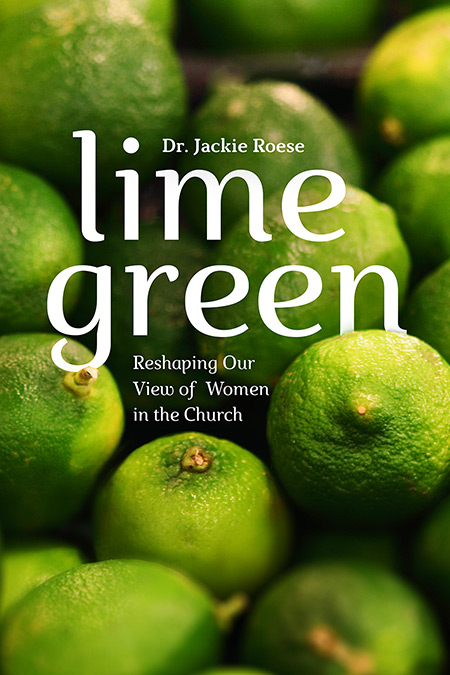My Embodied Self Is Not To Be Feared
My embodied self is not to be feared.Conservative faith communities tend to quote texts like 1 Timothy 2 and 1 Corinthians 14 as biblical proof of why women shouldn't be at the leadership table. Sadly, even if our male leaders won't admit it, there are other reasons why women aren't invited to the table. Sex being one of them. My body, her body and his body is feared. Female bodies present the possibility of moral failure therefore women are keep at bay. We live in a hyper-sexed world where Freud has convinced us that "every relationship" has sexual undertones.In Lime  Green I discuss the sex thing. I challenge us to consider there's another way besides believing the danger/romance narrative. Scripture offers another narrative, a brother sister narrative that harkens back to his creation mandate given to male and female in the Garden. Embracing a better, and dare I say a more biblical narrative, will force us to do a fundamental rethink about our sexual bodies. Is the sexual body only for sexual intercourse? I don't know about you but my embodied self spends proportionally a small amount of time engaged in sexual intercourse compared to other activities. So what's up with that? Why do I live in the body that spends most of its time engaged in activities other than the sex act? What does that reveal about our bodies? Why do you have a male body? Why do I have a female body? I would argue if we are to work as allies, not adversaries, we need a new narrative about our sexual bodies. (By the way, sexuality and sex are not the same thing!) Below is an excerpt that forces us to think about why we have gendered bodies. How does a rethink about our bodies impact who's invited to the leadership table? Greater yet, how does it impact our ability to live out our calling as the Blessed Alliance?I was born sexual. Not in a sexual-intercourse way, but in an I-am-differentiated-by-my-genitalia-and-I-want-to-be-connected-to-others way. Roman Catholic priest, Ronald Rolheiser, defines sexuality like this:
Green I discuss the sex thing. I challenge us to consider there's another way besides believing the danger/romance narrative. Scripture offers another narrative, a brother sister narrative that harkens back to his creation mandate given to male and female in the Garden. Embracing a better, and dare I say a more biblical narrative, will force us to do a fundamental rethink about our sexual bodies. Is the sexual body only for sexual intercourse? I don't know about you but my embodied self spends proportionally a small amount of time engaged in sexual intercourse compared to other activities. So what's up with that? Why do I live in the body that spends most of its time engaged in activities other than the sex act? What does that reveal about our bodies? Why do you have a male body? Why do I have a female body? I would argue if we are to work as allies, not adversaries, we need a new narrative about our sexual bodies. (By the way, sexuality and sex are not the same thing!) Below is an excerpt that forces us to think about why we have gendered bodies. How does a rethink about our bodies impact who's invited to the leadership table? Greater yet, how does it impact our ability to live out our calling as the Blessed Alliance?I was born sexual. Not in a sexual-intercourse way, but in an I-am-differentiated-by-my-genitalia-and-I-want-to-be-connected-to-others way. Roman Catholic priest, Ronald Rolheiser, defines sexuality like this:
“Sexuality is the drive for love, communion, community, friendship, family, affection, wholeness, consummation, creativity. . . joy, delight, humor, and self-transcendence. It is not good to be alone . . . Sexuality is a beautiful, good, extremely powerful, sacred energy, given us by God and experienced in every cell of our being as an irrepressible urge to overcome our incompleteness, to move toward unity and consummation with that which is beyond us.” [1]
Sexuality drives me to intimacy. Sexual intercourse may be a part of that intimacy, but we must remember that it is neither the goal nor the epitome of relational intimacy. Sexual intercourse alone does not fully provide the intimacy we long for as human beings.I want real intimacy. I want to know and be known, completely. I want to be free to be my best and worst self with others. I want to feel deeply connected on all planes. I want real intimacy.I suppose most of us are like that, and experience helps us realize that this longing is often only fulfilled in short bursts of time, giving us sporadic tastes of deeply intimate euphoria.Most of life is lived in between those moments, and we spend time desperately seeking them, sometimes through the false intimacies of masturbation or casual sexual acts, just being at social events or social places (coffeeshops, bars, etc.), or otherwise avoiding feeling the fact that we deeply want real intimacy and do not have it. To us, everyone else looks so happy and fulfilled. We falsely assume that there is probably something wrong with us and we fear what that might be.It’s counterintuitive, but true that we can only be authentically intimate with others when we know and love ourselves.Full article

